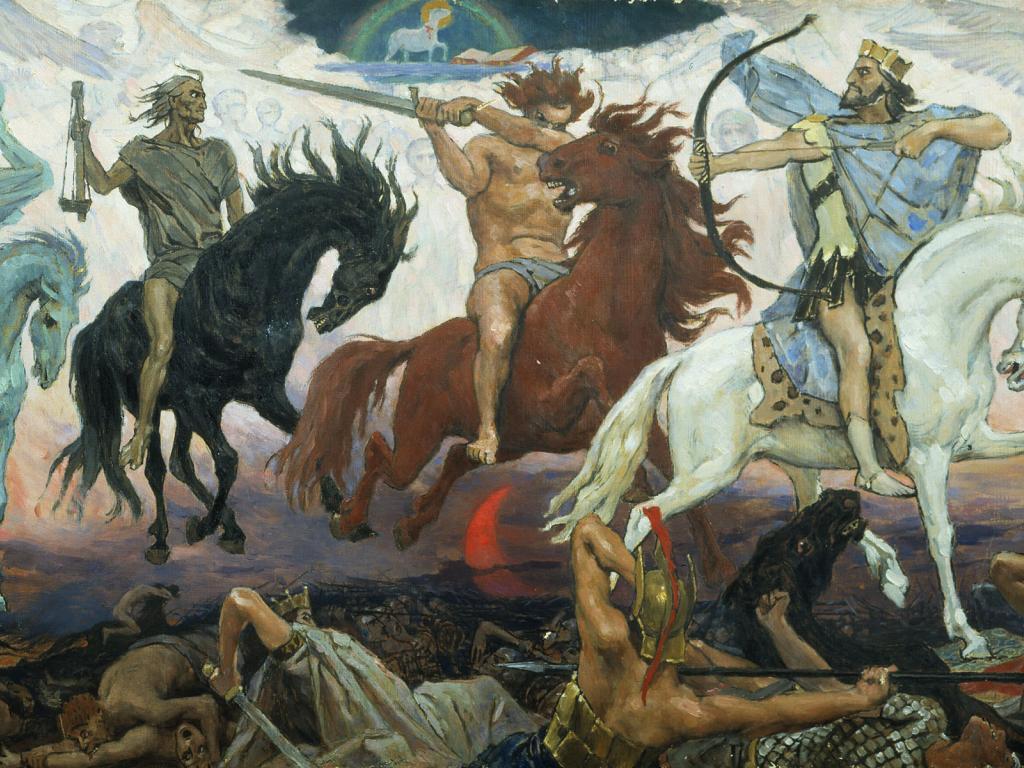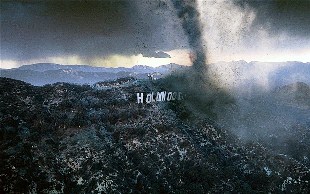Climate Change: Our slow apocalypse?

It is anticipated that climate change will have destructive impacts on our modern societies. Could we view this as our very own slow apocalypse? In this blogpost I look at how climate change is directly/indirectly represented as apocalyptic in modern-day films.
According to the Oxford dictionary, the definition of “apocalypse” is either “the complete final destruction of the world, especially as described in the biblical book of Revelation,” or “an event involving destruction or damage on an awesome or catastrophic scale.” If one looks at the predicted impacts that climate change will have on our current society, it sounds relatable to Oxford dictionary’s second definition. According to NASA some of these catastrophic events are already happening. Glaciers have shrunk, ice on rivers and lakes is breaking up earlier, plant and animal ranges have shifted and trees are flowering sooner.
Scientists are confident that global temperatures will continue to rise for decades to come, largely due to greenhouse gases produced by human activities. Heat waves, heavy downpours, sea level rise, erosion, inundation, and increasing ocean acidity pose growing challenges to many aspects of life in the world. Increasing wildfires, droughts, insect outbreaks, and crop failures are also expected. Ultimately, infrastructure, agriculture, fisheries, and ecosystems will be increasingly compromised.
Screenwriters and filmmakers have also picked up on this correlation between the popular definition of apocalypse and climate change. Some apocalyptic films like Elysium, Children of Men and Deep Impact have vague references to climate change, but the following films are more explicitly about their connection to climate change effects.


Waterworld: A 1995 American post-apocalyptic science fiction action filmdirected by Kevin Reynolds, set in the distant future when the polar ice caps have completely melted, and the sea level has risen many hundreds of feet, covering nearly all the land. The film illustrates this with the usual image of Earth, but shows the planet's water levels gradually rising and the polar ice caps melting until nearly all the land is submerged. The plot of the film centers on an otherwise namelessantihero, "The Mariner", a drifter who sails the Earth in his trimaran.
The Day After Tomorrow: In 2004 we were quite excited about Jake Gyllenhaal in the apocalyptic movieThe Day After Tomorrow. The Day After Tomorrow is an American climate fiction-disaster film co-written, directed, and produced by Roland Emmerich starring Dennis Quaid, Jake Gyllenhaal and Emmy Rossum. The film depicts fictional catastrophic climatic effects in a series of extreme weather events that usher inglobal cooling and leads to a new ice age.
Interstellar: More recently was the graphically stunning production of Interstellar. Interstellar is a 2014science fiction film directed by Christopher Nolan, starring Matthew McConaughey, Anne Hathaway, Jessica Chastain and Michael Caine. The film features a crew of astronauts who travel through a wormhole in search of a new home for humanity after crop blight has caused civilization to regress into a failing agrarian society. Former NASA pilot Cooper (McConaughey) runs a farm with his family but then travels through awormhole, apparently created by an alien intelligence, that leads to new planets that may offer hope for survival.
The Road: In my opinion the most thought-provoking end-of-the-world-as-we-know-it movie, The Roadwas released in 2009: The Road is a post-apocalyptic drama directed by John Hillcoat and written by Joe Penhall. Based on the Pulitzer Prize-winning 2006 novel of the same name by American author Cormac McCarthy, the film stars Viggo Mortensen and Kodi Smit-McPhee as a father and his son in a post-apocalyptic wasteland. A man and his young son struggle to survive after an unspecified cataclysm has killed most plant and animal life. Civilization has collapsed, reducing the survivors to scavenging and in most cases cannibalism. The duo search for supplies as they travel south on a road to the coast in the hope it will be warmer.
Although these films are all fictional, there is something to be said about the discourse on climate change that these apocalyptic themed films have become increasingly popular. According to the Atlantic “the parade of geological changes and extreme weather events around the world since 2011 has been stunning. Perhaps that's part of why, as the Public Religion Research Institute reported on Friday, "The number of Americans who believe that natural disasters are evidence of the apocalypse has increased somewhat over the past couple years." They add, however, that the majority of these beliefs have religious origins. Though I find it simplistic to refer to climate change as a slow apocalypse, I believe, as the popular media shows, that climate change and the gravity of its effects is becoming a much bigger reality to us.
Image source at: http://www.telegraph.co.uk/news/earth/environment/climatechange/8155587/Climate-change-images-of-apocalypse.html?image=3
Thumbnail source at: http://www.centives.net/S/2012/prepare-for-apocalypse/